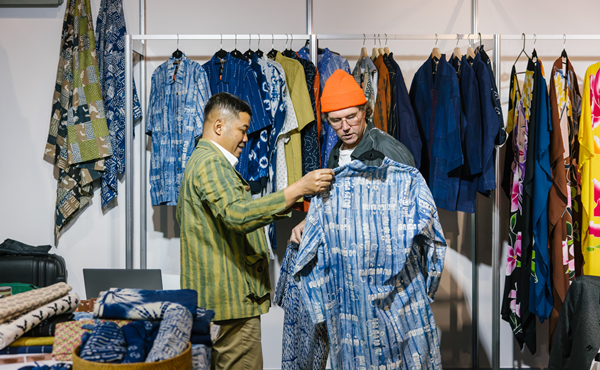There is mounting pressure on ethical brands to lead the charge in consumer education, accessibility and transparent practices when it comes to sustainability.
Julie Holt, global exhibitions director at Global Sourcing Expo, says digital product passports (DPPs) are one such way that brands will be held accountable and while there is no set roll out date for Australia, she does believe that it is coming.
“Implementation of DPPs in Europe is set for 2030 with many local brands currently taking stock of their supply chain, from the first thread to the finished product and packaging.”
DPPs are essential for tracing a product’s composition, lifecycle and sustainability.
“With a unique identifier like a QR code, it ensures transparency and supports circular economy goals through high-quality, accessible data. However, the traceability process cannot be underestimated and more conversations need to be had around it.”
At the very end of the product cycle lies the packaging process, another key differentiator for brands and a vital component for both ethical and consumer reasons.

“According to Trivium Packaging’s Buying Green Report, 82 per cent of consumers across age groups are willing to pay more for products with sustainable packaging, marking an increase from previous years,” Anaita Sarkar, co-founder and CEO of Hero Packaging and speaker at the Global Sourcing Expo, says.
However, Robert Lockyer, founder and chief client officer of Delta Global and speaker at the upcoming Global Sourcing Expo believes that while Australia is uniquely positioned to lead the global shift towards sustainable packaging, limited access to sustainable materials, cost pressures and supply chain complexities are some of the key stumbling blocks faced.
“There’s a significant opportunity for Australian brands to lead by example, particularly in showcasing how luxury and sustainability are not mutually exclusive,” says Lockyer.
“Investing in packaging that is not only recyclable or reusable but also beautifully designed and responsibly sourced creates a competitive edge, builds consumer trust and contributes to long-term brand equity.”

He adds that to move toward truly sustainable packaging, brands must rethink the entire lifecycle—from sourcing recyclable materials to designing for reuse without compromising quality.
“Mono-material packaging plays a key role in simplifying recycling, making it easier to process at the end of its life while maintaining a premium feel.”
Central to the success of sustainable packaging is consumer education.
“Digital touchpoints like QR codes can guide consumers in reusing or recycling packaging, while also enhancing traceability and streamlining returns,” he adds.
Global Sourcing Expo kicks off its 2025 portfolio in Sydney from 17 to 19 June.







